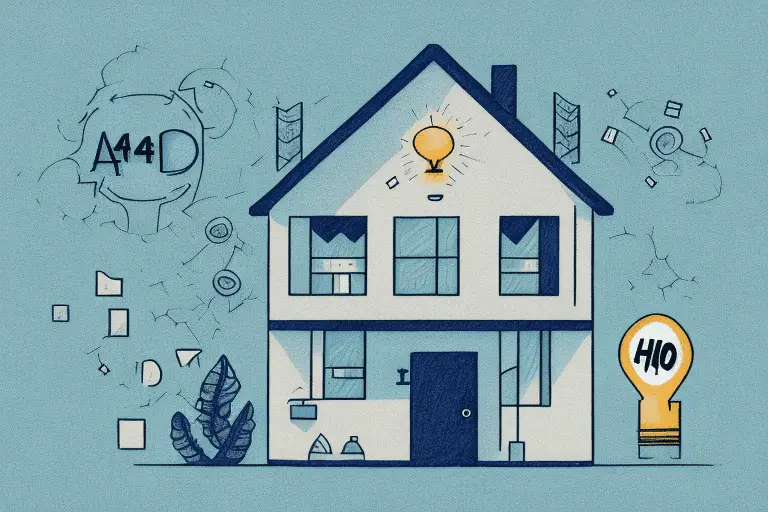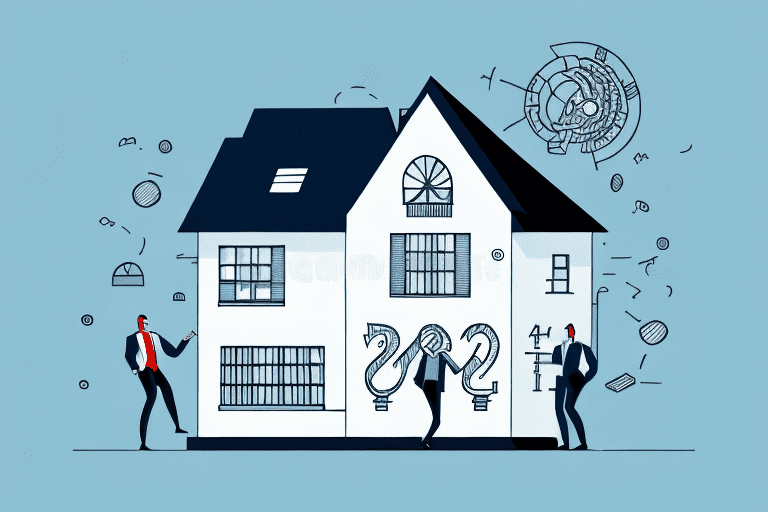
If you’re looking to buy a house, you may be considering tapping into your 401k for the down payment or other costs. While this can be an option, it’s important to understand the specifics before making any decisions. In this article, we’ll look at the ins and outs of using your 401k for a home purchase and weigh the pros and cons.
Understanding Your 401k and Home Buying Options
What is a 401k?
First, let’s review what a 401k retirement plan is. A 401k is a type of retirement account offered by many employers as a way for employees to save for retirement while receiving certain tax benefits. With a 401k, the employee can contribute a portion of their income pre-tax or on an after-tax basis, with the contributions and earnings growing tax-deferred until withdrawn. Many employers also offer matching contributions to incentivize employees to save.
It’s important to note that 401k contributions are limited by the IRS. In 2021, the maximum contribution limit is $19,500 for individuals under age 50, and $26,000 for those over age 50.
How Does a 401k Work?
401k contributions are invested into a variety of investment options such as mutual funds, stocks, and bonds. The funds in the account are accessible once the employee reaches retirement age, or may be accessed earlier with certain penalties and restrictions.
It’s important to regularly review and adjust your 401k investments to ensure they align with your retirement goals and risk tolerance. Many employers offer resources and tools to help employees make informed investment decisions.
Traditional vs. Roth 401k
With a traditional 401k, contributions are made pre-tax, which reduces the employee’s taxable income for the year. Withdrawals from the account in retirement are taxed as ordinary income. Alternatively, a Roth 401k allows contributions to be made on an after-tax basis, with withdrawals in retirement being tax-free.
Deciding between a traditional and Roth 401k depends on individual circumstances such as current and expected income tax rates, retirement goals, and financial situation. It’s important to consult with a financial advisor or tax professional to determine which option is best for you.
Home Buying Basics
When buying a home, the down payment is typically a large upfront cost. This down payment can range from 3-20% of the home’s purchase price. Additionally, there are closing costs and other expenses that need to be factored in. Using funds from a 401k may be an option to cover these costs.
However, it’s important to carefully consider the potential consequences of withdrawing from a 401k early. Withdrawals made before age 59 1/2 may be subject to a 10% early withdrawal penalty, in addition to income tax on the amount withdrawn. Additionally, withdrawing funds from a 401k reduces the amount available for retirement, potentially impacting long-term financial goals.
There are also alternative options for homebuyers, such as down payment assistance programs and low down payment mortgages. It’s important to thoroughly research and compare all available options before making a decision.
Pros and Cons of Using Your 401k to Buy a House
Buying a house is a significant life decision that requires careful consideration of all available options. One option that some people consider is using their 401k savings to purchase a home. While this can be a viable option for some, it’s important to understand the pros and cons before making a decision.
Advantages of Using Your 401k
One major advantage of using your 401k for a home purchase is the ability to access funds that wouldn’t otherwise be available without incurring penalties. This can be especially helpful if you’re struggling to come up with a down payment or if you’re unable to secure a loan from a traditional lender.
Another advantage of using your 401k is that you’re essentially borrowing money from yourself, which means you won’t have to pay interest to a lender. This can save you thousands of dollars in interest payments over the life of your mortgage.
Finally, using your 401k to buy a house can provide you with a sense of security and stability. Owning a home can give you a sense of pride and accomplishment, and it can also provide you with a stable place to live for years to come.
Disadvantages and Risks
While there are some advantages to using your 401k to buy a house, there are also some significant disadvantages and risks that you should be aware of.
First and foremost, withdrawing funds early from your 401k can incur penalties and taxes, depending on your age and specific circumstances. This can significantly reduce the amount of money you have available to put towards your home purchase.
Additionally, taking money out of the account can negatively impact the potential growth of your retirement savings. This can have a ripple effect on your financial future, as you may need to work longer or save more aggressively to make up for the lost savings.
Finally, if you leave your job before the loan is repaid, you may be required to pay back the full loan balance immediately. This can be a significant financial burden, especially if you’re already struggling to make ends meet.
Different Ways to Use Your 401k for Home Purchase

Buying a home is a significant investment, and many people look for ways to fund their down payment. One option that some consider is using their 401k retirement account. While it’s not always advisable to use retirement savings for a home purchase, there are a few ways to do so if you decide it’s the right choice for you.
401k Loan
If you have a 401k account, you may be able to take out a loan against it to fund your home purchase. This option allows you to borrow money from yourself, essentially, and pay it back with interest over time. The benefit of a 401k loan is that you won’t be hit with early withdrawal penalties or taxes, as long as you repay the loan on time. However, if you leave your job before the loan is fully repaid, you may owe the remaining balance. Additionally, taking a loan against your 401k may reduce the amount of money you have saved for retirement, so it’s important to weigh the pros and cons before making a decision.
Hardship Withdrawal
In some cases, you may be able to take a hardship withdrawal from your 401k to fund a home purchase. However, it’s important to note that this option is only available if you’re facing significant financial hardships, such as medical bills or unemployment. Additionally, a hardship withdrawal cannot be used for a home purchase unless you’re facing eviction or foreclosure. If you do qualify for a hardship withdrawal, you’ll likely face early withdrawal penalties and taxes on the amount you withdraw, so it’s important to consider the long-term impact on your retirement savings.
First-Time Homebuyer Exception for IRAs
While not specific to 401ks, it’s worth noting that first-time homebuyers may be able to withdraw up to $10,000 penalty-free from their Traditional or Roth IRA accounts for the purpose of buying a home. This exception only applies to IRAs, not 401ks, and there are some restrictions and requirements to qualify. For example, you must be a first-time homebuyer, which is defined as not owning a home in the past two years. Additionally, the $10,000 limit is a lifetime limit, not an annual limit, so you can only use this exception once.
Ultimately, using your 401k to fund a home purchase is a personal decision that should be made after careful consideration of your financial situation and long-term retirement goals. While there are some options available, it’s important to understand the potential risks and drawbacks before making a decision.
How to Take a 401k Loan for Home Purchase
Buying a home is a big investment, and many people turn to their retirement savings to help with the down payment. If you have a 401k, you may be able to take out a loan to purchase your dream home. Here are some things you need to know about taking a 401k loan for a home purchase.
Eligibility and Requirements
Before you can take out a 401k loan for a home purchase, you need to determine if your employer’s plan allows for loans. Not all 401k plans allow for loans, so it’s important to check with your plan administrator. Additionally, you must be a current employee of the company and have enough vested in your 401k account to take out a loan.
It’s worth noting that taking out a 401k loan can impact your retirement savings. When you take out a loan, you’re essentially borrowing from your future self. You’ll need to pay back the loan with interest, and if you’re unable to make the payments, you could end up defaulting on the loan and facing penalties and taxes.
Loan Limits and Repayment Terms
401k loans typically have a maximum loan amount of $50,000 or 50% of the account balance, whichever is less. The repayment term is usually 5 years or less, with interest rates varying by plan. Keep in mind that the interest you pay on the loan is going back into your account, so you’re essentially paying yourself back.
Steps to Apply for a 401k Loan
If you’ve determined that you’re eligible for a 401k loan and you’re ready to apply, here are the steps you’ll need to follow:
- Contact your plan administrator to confirm eligibility. They’ll be able to tell you if your plan allows for loans and how much you’re eligible to borrow.
- Determine the loan amount and repayment terms. You’ll need to decide how much you want to borrow and how long you’ll need to pay it back.
- Complete the loan application and submit it to the plan administrator. The application will ask for information about your employment, your 401k account, and the loan amount you’re requesting.
- Once approved, receive the funds and begin making payments on time. The funds will be deposited directly into your bank account, and you’ll need to start making payments on time to avoid defaulting on the loan.
Remember, taking out a 401k loan for a home purchase is a big decision. Make sure you understand the terms of the loan and the impact it will have on your retirement savings before you apply.
Conclusion
Ultimately, the decision to use your 401k to buy a house is a personal one that depends on your individual circumstances and financial goals. While it can be a viable option in some cases, it’s important to carefully weigh the pros and cons before making a decision.
While using your 401k to buy a house can be a viable option, it’s important to carefully consider the pros and cons before making any decisions. Take the time to understand your specific plan rules and regulations and consult with a financial advisor to determine the best course of action for your individual situation.
Consider speaking with a financial advisor or mortgage professional to help you make an informed decision and create a plan that works best for you and your family.
Leave a Reply